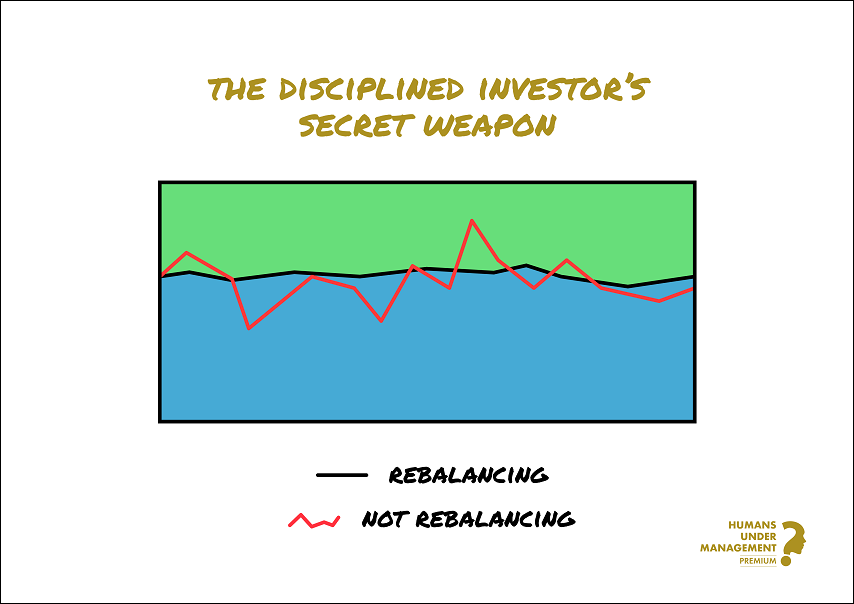Rebalancing: The Disciplined Investor’s Secret Weapon
Chris Broome – Chartered Financial Planner
In any investment portfolio, it’s normal to find that one asset class has outperformed the others in the recent past. Our minds, being extrapolation machines, often assume that what has happened in the past will continue into the future.
This causes us to be drawn to investments that have performed well recently, hoping their strong performance will continue. This behaviour is unique to investing; in most other areas of life, we generally look for good value. We rush to the shops when there’s a sale, not when the price has recently increased.
In reality, however, rather than recent price movements continuing forever, investment asset classes tend to “revert to the mean.” Assets that have recently performed well go through a period of disappointing performance, while recent underperformers make a comeback.
To fight the natural urge to chase performance and take advantage of the market’s cycles, the disciplined investor has a secret weapon.
The Benefits of Rebalancing
When asset classes experience different returns, it’s normal for a diversified portfolio of equities and bonds to no longer align with the original investment strategy.
This is where rebalancing comes into play. Rather than being tempted to shift more assets into the performing asset class, rebalancing is periodically adjusting your investment portfolio to return to your target mix of assets. This means reducing the allocation to the asset class that has performed well and buying more of the asset class that has performed poorly.
While counterintuitive, it’s a powerful tool that can help counteract our natural impulses and keep our investment strategy on track. When you rebalance, you sell some of the best-performing assets (which have become more expensive) and buy more underperforming assets (which have become relatively cheaper). This systematic approach helps you capitalise on market fluctuations without trying to predict them.
Another significant benefit of rebalancing is ensuring your investments align with your financial goals and required return. As markets shift and certain assets outperform others, your portfolio can drift away from your original target allocation. Regular rebalancing corrects this drift, keeping you on track with your investment strategy.
Lastly, in a world where short-term thinking often prevails, rebalancing encourages you to focus on your overall investment strategy. It reminds you that investing is a long-term endeavour and helps you avoid reactive, emotion-driven decisions.
Discipline Triumphs Predictions
Successful investing is about consistency and discipline rather than trying to time the market perfectly. The goal isn’t to predict which investments will perform best in the short term but to maintain a diversified portfolio aligned with your long-term goals. By rebalancing, you’re positioning yourself to benefit when these trends reverse, as they often do over time.
The most straightforward approach to rebalancing is to schedule an annual review of your financial planning and rebalance at that time. At this time, the asset classes that have performed better are reduced in favour of asset classes that have underperformed. In effect, the investor is “selling high and buying low.”
This is best done with the help and guidance of a caring financial adviser. As always, your unique goals, circumstances, and tax planning should also be considered.
By working together to implement a robust rebalancing strategy, we can help ensure that your portfolio remains aligned with your goals, regardless of market fluctuations.
Next steps
If you have any questions about any of the above, or wish to discuss your long-term financial plans with us, please get in touch. Contact us
Please note: This blog is for general information only and does not constitute advice. The information is aimed at retail clients only.
The value of your investment can go down as well as up and you may not get back the full amount you invested.
Past performance is not a reliable indicator of future performance.





